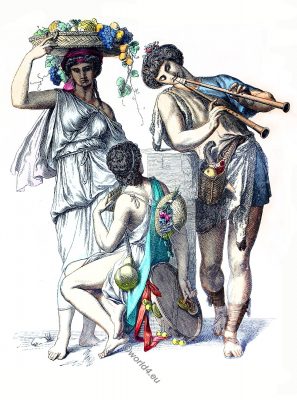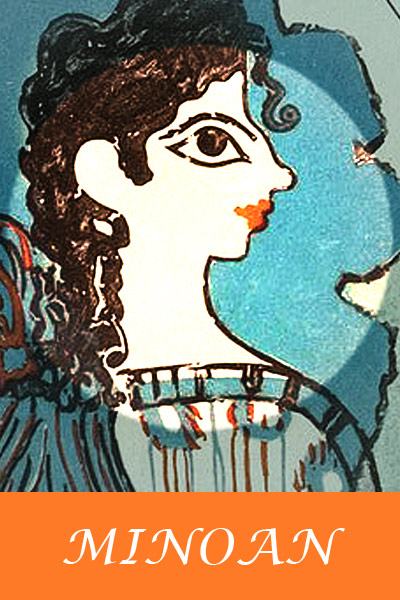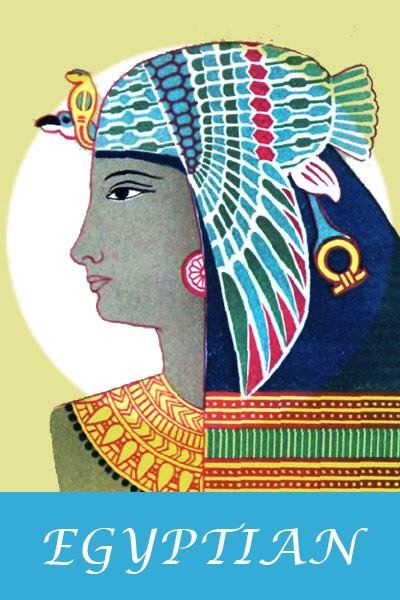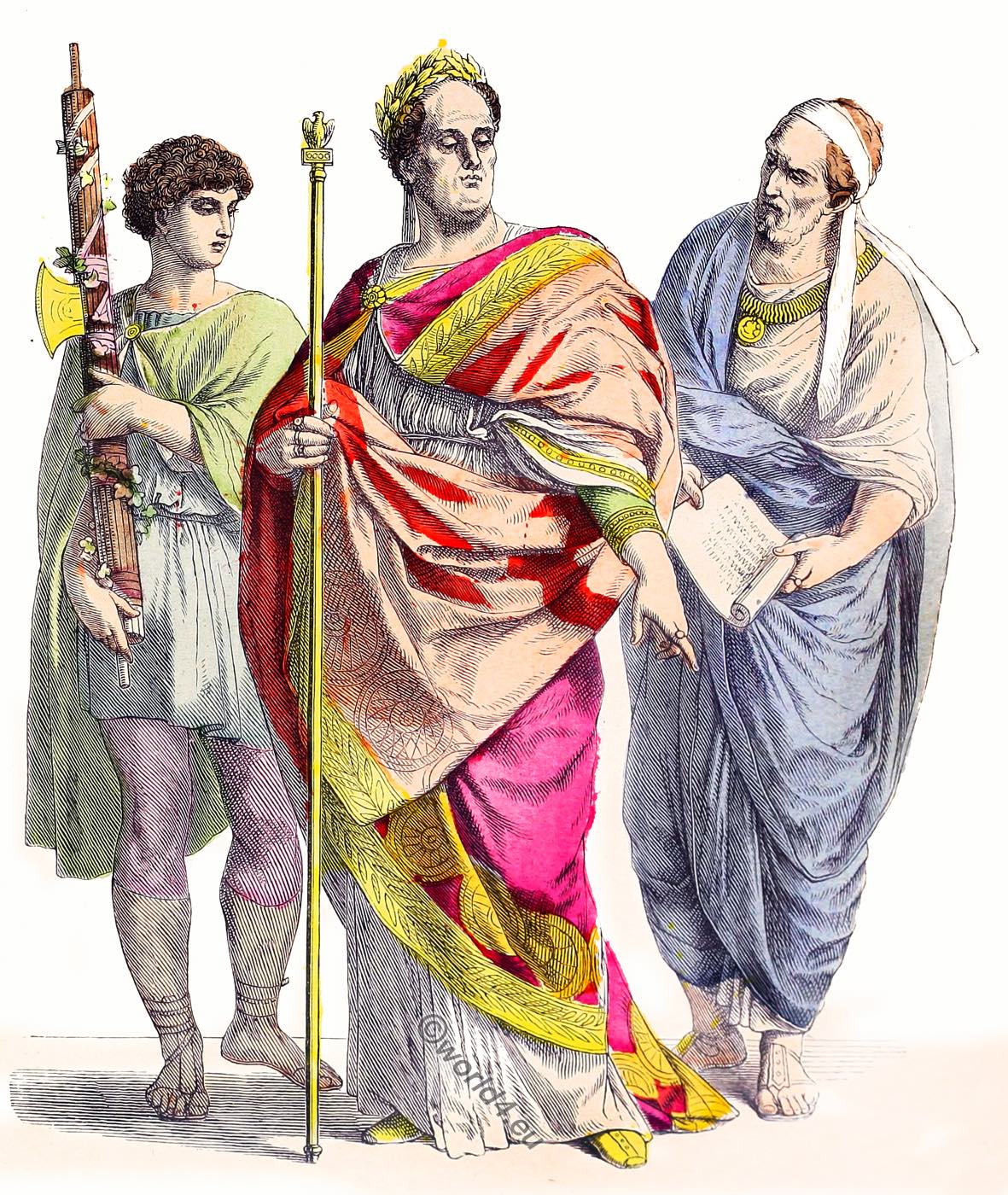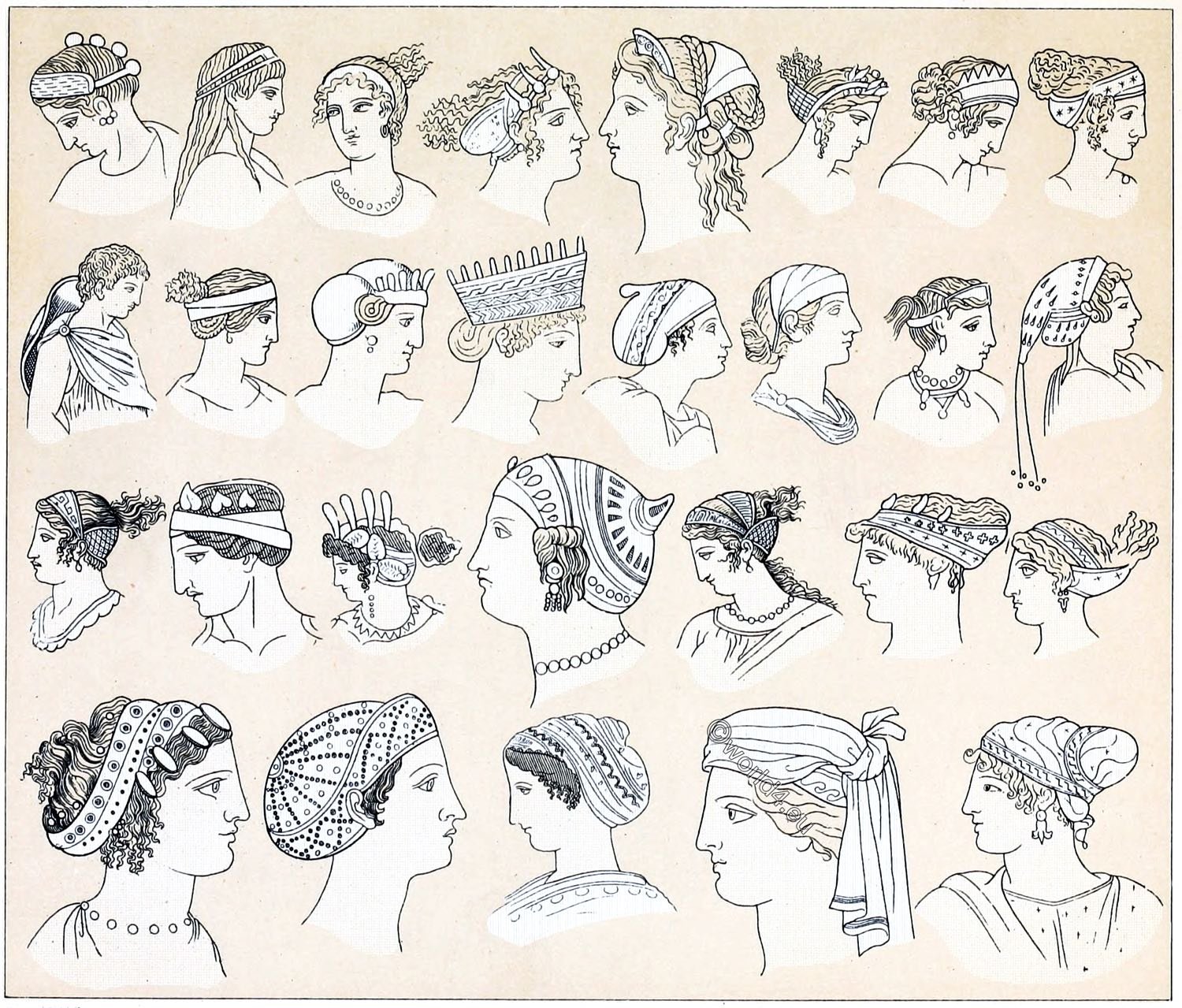The Peplum.
The peplum constituted the outermost covering of the body. Among the Greeks it was worn in common by both sexes, but was chiefly reserved for occasions of ceremony or of public appearance, and as well in its texture as in its shape, seemed to answer to our shawl. When very long and ample, so as to admit of being wound twice round the body-first under the arms, and the second time, over the shoulders-it assumed the name of diplax.
In rainy or cold-weather it was drawn over the head. At other times this peculiar mode of wearing it was expressive of humility or of grief, and was adopted by men and women when in mourning, or when performing sacred rites; on both which accounts it was thus worn by Agamemnon, when going to sacrifice his daughter.
This peplum was never fastened on by means of clasps or buttons, but only prevented from slipping off through the intricacy of its own involutions.
Endless were the combinations which these exhibited; and in nothing do we see more ingenuity exerted, or more fancy displayed, than in the various modes of making the peplum form grand and contrasted draperies. Indeed the different degrees of simplicity or of grace observable in the throw of the peplum, were regarded as indicating the different degrees of rusticity or of refinement inherent in the disposition of the wearer.
For the sake of dignity, all the goddesses of the highest class, Venus excepted, wore the peplum; but for the sake of convenience, Diana generally had hers furled up and drawn tight over the shoulders and round the waist, so as to form a girdle, with the ends hanging clown before or behind. Among the Greeks the peplum never had, as among the barbarians, its whole circumference adorned by a separate fringe, but only its corners loaded with little metal weights or drops, in order to make them hang down more straight and even.


